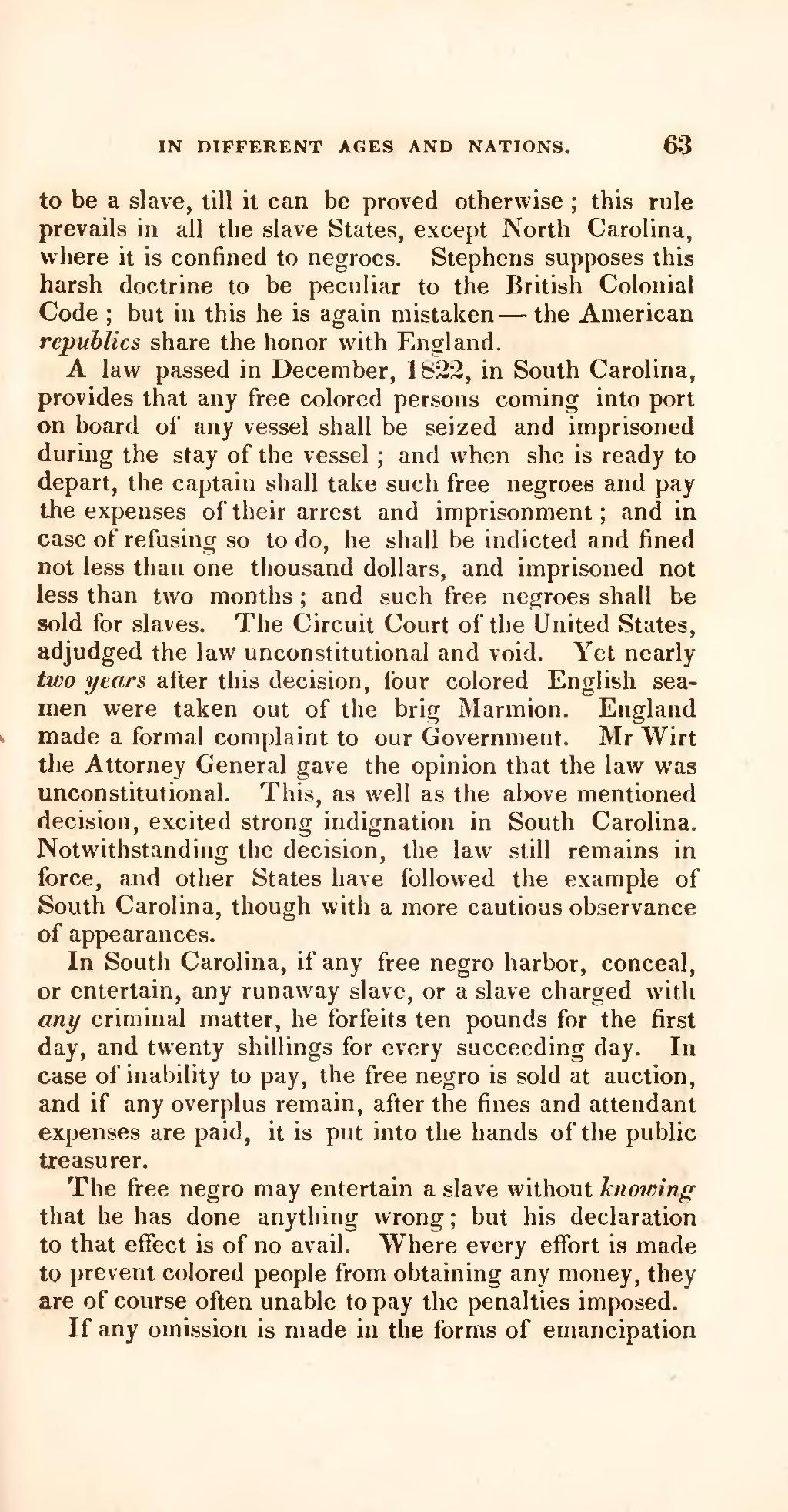to be a slave, till it can be proved otherwise; this rule prevails in all the slave States, except North Carolina, where it is confined to negroes. Stephens supposes this harsh doctrine to be peculiar to the British Colonial Code; but in this he is again mistaken—the American republics share the honor with England.
A law passed in December, 1822, in South Carolina, provides that any free colored persons coming into port on board of any vessel shall be seized and imprisoned during the stay of the vessel; and when she is ready to depart, the captain shall take such free negroes and pay the expenses of their arrest and imprisonment; and in case of refusing so to do, he shall be indicted and fined not less than one thousand dollars, and imprisoned not less than two months; and such free negroes shall be sold for slaves. The Circuit Court of the United States, adjudged the law unconstitutional and void. Yet nearly two years after this decision, four colored English seamen were taken out of the brig Marmion. England made a formal complaint to our Government. Mr Wirt the Attorney General gave the opinion that the law was unconstitutional. This, as well as the above mentioned decision, excited strong indignation in South Carolina. Notwithstanding the decision, the law still remains in force, and other States have followed the example of South Carolina, though with a more cautious observance of appearances.
In South Carolina, if any free negro harbor, conceal, or entertain, any runaway slave, or a slave charged with any criminal matter, he forfeits ten pounds for the first day, and twenty shillings for every succeeding day. In case of inability to pay, the free negro is sold at auction, and if any overplus remain, after the fines and attendant expenses are paid, it is put into the hands of the public treasurer.
The free negro may entertain a slave without knowing that he has done anything wrong; but his declaration to that effect is of no avail. Where every effort is made to prevent colored people from obtaining any money, they are of course often unable to pay the penalties imposed.
If any omission is made in the forms of emancipation
